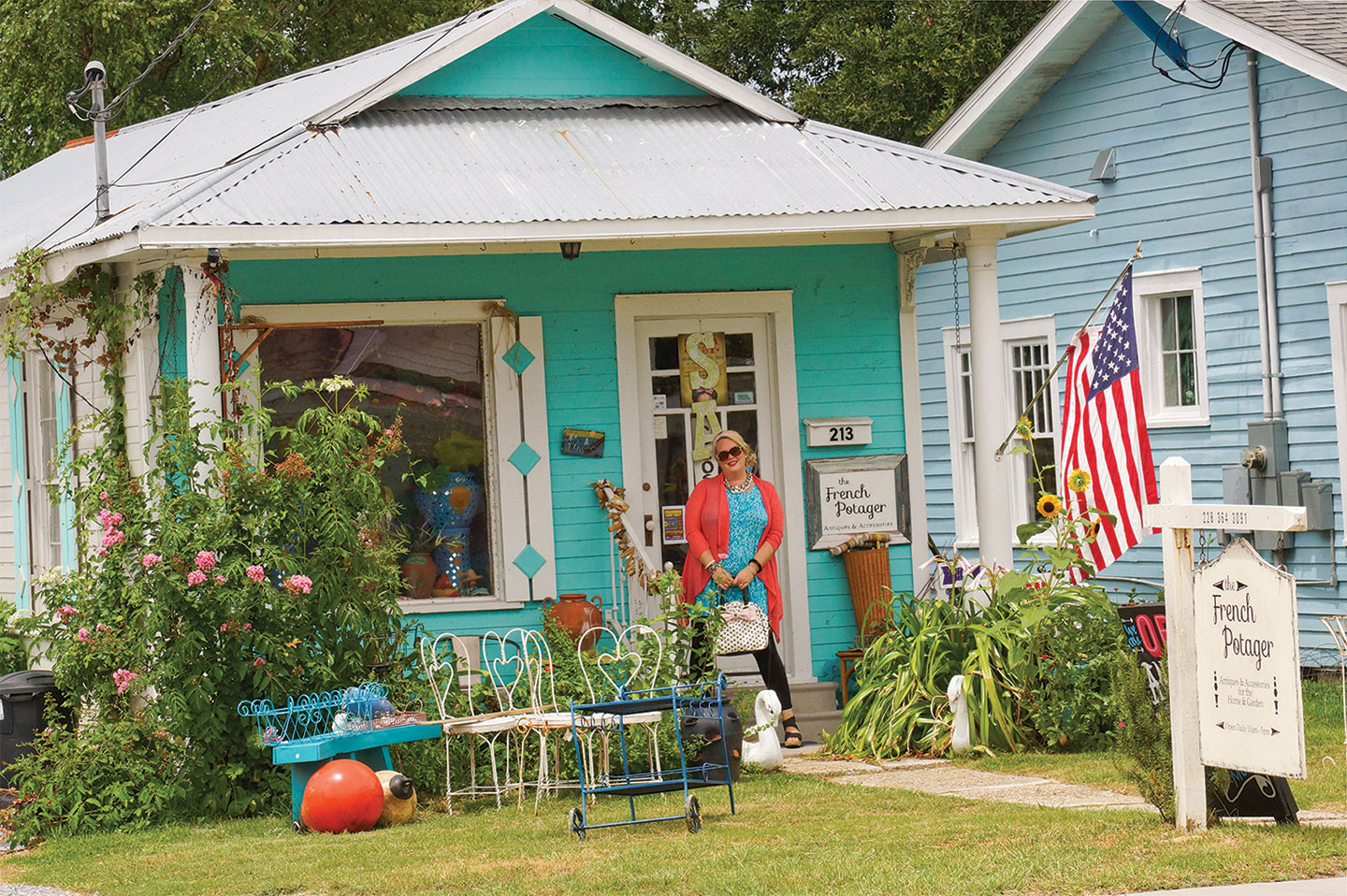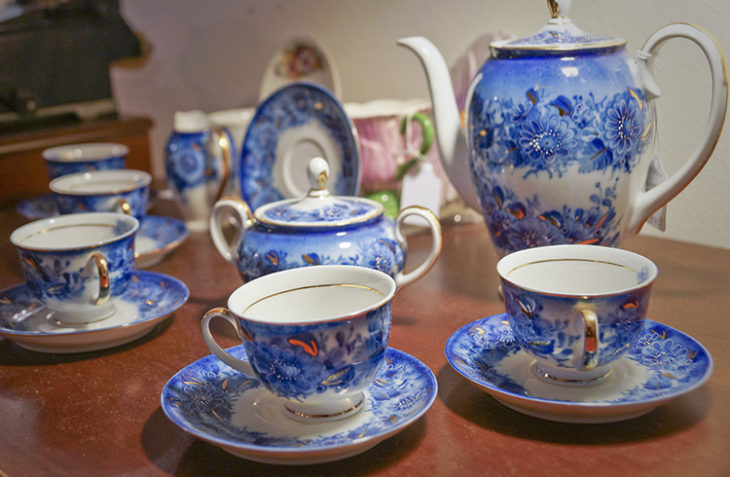by Martha Whitney Butler | photography by Ellis Anderson
“Will you take any less for this?”
As the proprietor of an antique mall in Bay St. Louis, that question is the bell of my alarm for each day. It’s my sunrise, my coffee, and my morning bike ride. It’s a perfectly legitimate question, but there are reasons I don’t haggle over particular items for sale in my store.
These reasons have to do with differences between types of antique resale stores and their business models.
I will explain those differences and shine a light on the workings of the antique mall industry. It’s a unique and prevalent business in our area, and is one that rewards both residents and visitors with a diverse variety of shops and goods.
ANTIQUE MALL VS. CONSIGNMENT SHOP
One of the biggest misconceptions I encounter at the French Potager is people thinking we are a consignment store. A consignment business takes individual items based on an agreed-upon percentage that the store takes upon selling that item.
The agreement is between the consignee (store owner) and the consignor. This is a common type of business for items such as designer clothing and formalwear. Some antique malls adopt this method for items like artwork or high-end furniture, based on availability and space.
An antique mall rents spaces or booths to individual dealers for a monthly fee and a percentage of sales: the dealer displays items, and the shopkeeper takes a very small percentage for selling them. This is the most prevalent type of business in our community, giving us a healthy variety of goods.

BOOTHS AND DEALERS
Dealers are the people who rent the booths or spaces within an antique mall. Most are experienced, seasoned entrepreneurs who rent space and flip items as a hobby or business. They often have day jobs, are retired, or use booths in other towns as satellite locations for their brick-and-mortar stores.
Dealers often spend countless hours at auction. They are the early birds getting all the proverbial worms at the best estate sales, and they take exhaustive trips around the country (or world) to seek out objects of interest for their clientele.
It’s back-breaking labor to lift furniture, rehab pieces, and haul items from place to place. Considering all the dilapidated structures I’ve climbed into, the snakes and bees I’ve encountered, the things I’ve toted for miles and miles on cobblestone streets in Europe, and the paint fumes I’ve inhaled, you might understand my urge to cringe a little when someone asks if I’d take less than the price marked for a particular treasure.
Often I oblige, because I want nothing more than to do it all again. The thrill of the find is unsurpassed by everything except for the thrill of the sale. Knowing that you can relay the provenance of an item to someone else and they will appreciate it and cherish it is the highlight of this business.
DEATH AND TAXES
I recently read an article about the dying world of antiques — how millennials aren’t receptive to the concept or appreciative of the old.
I’m a millennial. I own an antique store. Enough said.
That brings me to the “taxes” portion of this segment. I often hear, “If I give you cash, could you not charge me taxes?”
If you do this, be prepared for a long-winded speech about streetlights, potholes and education! The answer is no. Unless you are buying the item solely for resale purposes, and have what is called a resale certificate, you have to pay sales tax.
EVOLUTION OF THE ANTIQUE MALL
Fun, funky, brimming with personality, and serving a broader range of clientele, the shops in Bay St. Louis cater to both locals and visitors. Don’t worry, we still sell vintage and antique items, but we would also like to stay alive.
Which brings me to my point: we’ve evolved our business to sustain the desires of our customers. We might not be all antiques anymore, but don’t be put off by new items for sale in our stores. Variety is the key in our business, and Antique Maison’s motto says it best: “Something for everyone.”
HAGGLING
There’s a thrill in it! I understand, trust me.
But there’s a right way to haggle and a wrong way. This could be another article in itself, but I’ll graze over it here.
Malls have different dealers, and thus different prices and personalities. Some dealers will deal, and some won’t. The shopkeeper knows which ones will and which ones won’t, and they often know who will discount at a certain percentage. Please don’t shoot the messenger when she tells you ther dealer won’t come down off the price!
The best time to haggle is when you buy several items from one particular dealer. Also, a little kindness and understanding goes a long way. If you come in for the second time to visit a $350 piece of furniture that you absolutely adore, I would love nothing more than for you to have it — discount approved!
Dealers are usually not willing to deal on items under $50-$100, so picking up a bottle opener that’s $5 and offering $2 seems out of place. Be reasonable, be kind, and put yourself in our shoes when playing “let’s make a deal.” Also, have an offer in mind and make it. We applaud decisiveness in these stores.
I hope this article helps people understand some aspects of how antique malls work. It’s not traditional, and it may seem odd to walk into an antique shop like the French Potager and find a florist in the back!
The booths in these malls provide so much more than gifts, goods and furniture. They’re hobbies for retirees, attractions to tourist towns for antique-lovers, and one of them might even belong to a 16-year-old, hustling entrepreneur who dreams of opening her own shop one day — like I did!


